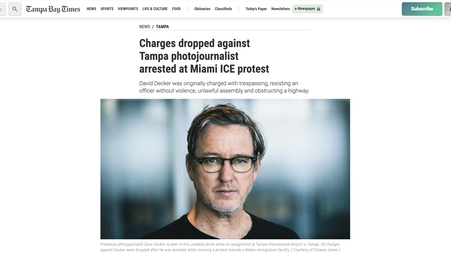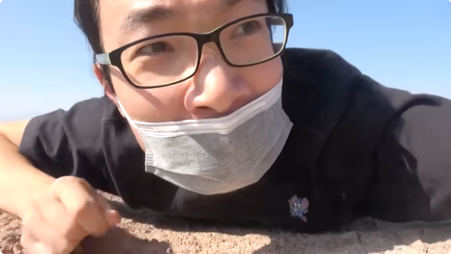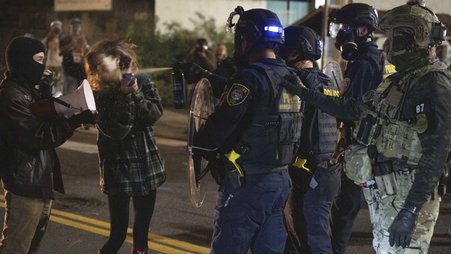
For journalists covering the immediate aftermath of George Floyd’s death in 2020, there was no more dangerous place to be than Minneapolis. According to our U.S. Press Freedom Tracker, in the span of one week, authorities in the city committed more assaults and more arrests of journalists than in the entirety of 2019.
On Wednesday, the Minnesota State Patrol was finally held accountable for their actions. The ACLU of Minnesota, which represented a class action group of journalists who were attacked and arrested during that time, has come to a historic agreement that was just approved by a judge. The settlement should be a model for other jurisdictions around the country who saw police flagrantly violate the rights of journalists in 2020.
In addition to more than $800,000 in financial compensation for the journalists involved, law enforcement working with MSP and the MSP — under court order — will now be explicitly prohibited from:
- Arresting, threatening to arrest, and/or using physical force or chemical agents against journalists.
- Ordering journalists to stop photographing, recording or observing a protest.
- Making journalists disperse.
- Seizing or intentionally damaging equipment such as photo, audio or video gear.
One of the plaintiffs, Ed Ou, our friend and award-winning photojournalist who was seriously injured by state troopers, said on Twitter after the decision was announced:
“For me, this lawsuit and settlement is bittersweet - because it is… sad that we even needed to do this in the first place. We should have already been protected by the First Amendment, and able to operate without fear of being attacked by security forces for our work. But this is a start, and sends a signal to security forces that they cannot act with impunity, and there are consequences for their actions.
I am grateful to everyone who supported us, and proud to stand with journalists who continue to bear witness and bring truth to light.”
As we have cataloged in the U.S. Press Freedom Tracker, more than 140 journalists were arrested around the country in 2020, a nearly 1500% increase on the year prior. More than 600 were assaulted in the same year. In the vast majority of those cases, the perpetrator was law enforcement.
While the issue of press freedom has been elevated to a national level over the past few years, this case is a reminder that it is state and local jurisdictions that have the most power to protect or curtail journalists’ rights. If police departments are not held accountable for arresting reporters exercising their First Amendment rights, or they are not punished for assaulting or shooting projectiles at reporters while they do their jobs, then these actions will only continue.
Tracker senior reporter Stephanie Sugars recently documented that there are currently dozens of lawsuits in progress around the country, brought by journalists who were arrested or assaulted by police officers while covering Black Lives Matters protests in 2020 and 2021.
We hope this settlement will become a model around the country for other journalists seeking accountability, and judges in those cases should take note.




